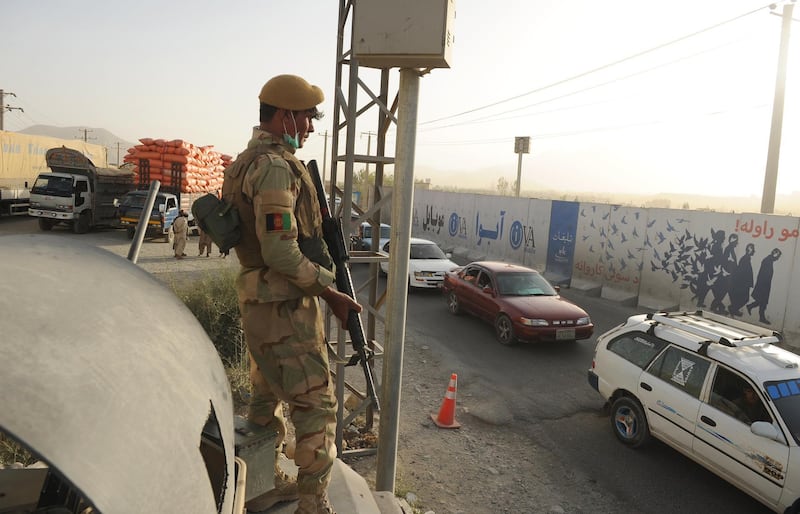The four-day battle for the Afghan city of Ghazni has killed at least 100 security forces and 20 civilians, wounding many more, a minister said today.
The city is a strategic centre on the main highway linking Kabul with southern Afghanistan and the offensive comes as a blow to the country's President Ashraf Ghani just weeks before parliamentary elections.
Insurgents launched a siege on the city on August 10, seizing control of districts in the north and west of the city.
Afghan security forces have been fighting with the Taliban for four days, backed by US military experts and air strikes.
"US advisers are assisting the Afghan forces and U.S. airpower has delivered decisive blows to the Taliban, killing more than 140 since August 10," said Lt Col Martin O'Donnell, the spokesman for US Forces-Afghanistan.
The Afghanistan government admitted being taken by surprise by the attack, and after 72 hours of minimal comment, President Ghani announced reinforcements would be sent to the city.
Many Taliban fighters have been killed.
It also sends mixed signals about the Taliban's intentions regarding a peace process.
The group said its representatives held talks with a top US official last month and visited Uzbekistan last week to discuss peace and infrastructure projects.
The country's Western-backed government had been mulling an Eid Al Adha ceasefire next week, similar to the truce for Eid Al Fitr in June when the Taliban suspended fighting for the first time in its 17-year insurgency.
The Taliban's political office also announced that a delegation met officials in Uzbekistan during a five-day trip to the country to discuss issues including transport and power lines and peace in Afghanistan.
Taliban representatives met Uzbek Foreign Minister Abdul Aziz Kamilov and Special Representative for Afghanistan Ismatulla Irgashev during the August 6-10 visit, a spokesman said.
They discussed "current and future national projects such as security for railroad and power lines”, Muhammad Sohail Shaheen said.
“Views were also exchanged with officials of Uzbekistan about the withdrawal of foreign forces and how to achieve peace in Afghanistan,” he said.
The rail and power links from Uzbekistan are vital both for cross-border trade and for maintaining Afghanistan’s shaky power supplies, which are already subject to frequent blackouts.
Still, there was no indication from either side that progress toward substantive talks between the Taliban and the government was made.
More to follow





